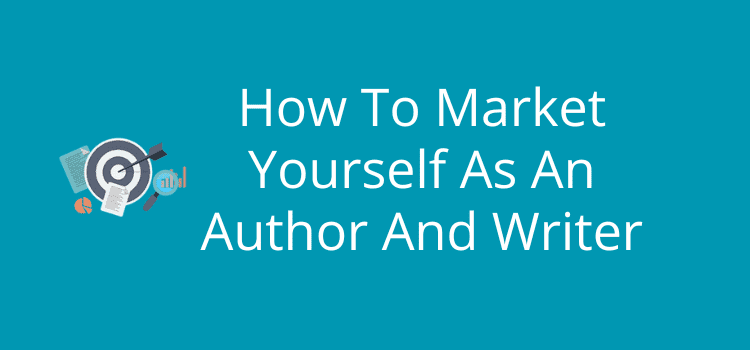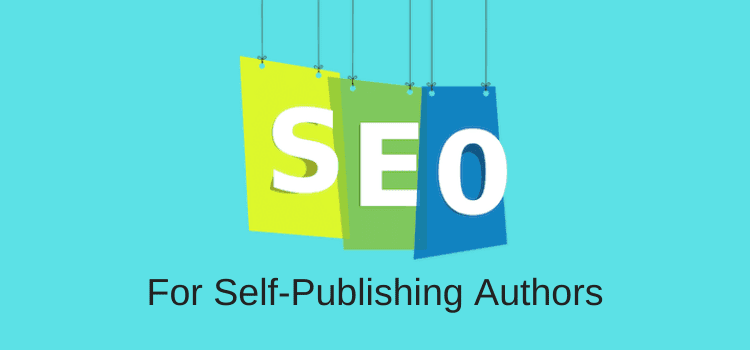
Learning how to market yourself as an author is essential and will help you reach new readers and book buyers.
But with so many different options and strategies to choose from, it can be challenging to know where to start.
However, the two basics are building a social media presence and writing and creating engaging content on your blog or website.
Promoting your books and writing is not selling. It’s about attracting people’s attention to your books and writing.
Promote yourself and not your books
Are you wondering about the differences between author promotion and selling books?
If so, I’ll share some of my ideas and approaches to author and book promotion.
I have to say from the outset, though, that these are methods that work for me.
They are not necessarily a set of rules that you have to follow.
The other point I must make is that building an author platform involves a lot of time, patience, and hard work.
You need to learn how to promote yourself as a writer and author, not just as a bookseller.
It’s a fine line, and it’s not always easy to find a balance between the two.
Your goal is to attract readers to your writing and, hopefully, book buyers.
The only way to achieve this is to use every opportunity to arouse interest in your writing.
Let’s look at some of the ways you can market yourself as an author.
I see so many poorly written author bios on social media.
It is almost always the very first thing people read about an author.
Yet, many give very little thought to this short piece of text.
All too often, they are full of clichéd expressions and, quite honestly, boring.
Author of a book, International Bestselling Author, Award-Winning Contemporary Romance Author, and so on.
Quite honestly, who would want to follow?
And are they honest?
However, this one does attract attention:
Will eventually grow up and get a real job. Until then, will keep making things up and writing them down.
This is the short Twitter profile of Neil Gaiman.
Think carefully about the short profiles you use on social media.
Also, check and regularly update the longer version you have on book retailers, websites, and blogs.
Tell people why you are interesting and why you are worth following.
Forget the clichés, be yourself and be original.
Blogging is a must
For me, this is the most important part of author promotion.
Author blogs take a lot of time and effort, but the long-term rewards are far greater than any other means.
It is the best vehicle available for people to find you.
Every post tells a story and reveals your character, personality, knowledge, and opinions.
It also opens the door to possible discussion and debate.
But the key benefit is in an often forgotten fact. Every single post adds to your Search Engine listings.
My personal author blog has over 1,000 posts, many of which are listed on Search Engines.
Over 75% of my blog visitors come from Google, Bing, or Yahoo.
Over the years, it has built from almost no visitors to an average of around 4,000 visitors per month.
The mistake a lot of author bloggers make, though, is to view their blog as some kind of daily diary or journal.
Publishing posts about family, pets, and rants and raves is not a good idea.
Publishing a short story, a poem, or something interesting and relevant to books or writing is a much better idea.
Successful author blogs are clearly focused and build a reputation on a particular topic.
Keep your blog articles focused on your writing and books or the themes in your books.
You can also guest post on other blogs.
Good blogging is similar to good freelance writing.
You need to post quality articles regularly and stay on topic.
As a tip, Search Engines prefer articles that are more than 1,000 words, so avoid writing short posts.
Social media promotion

Author promotion using social media has many benefits.
You can hope to increase your visibility and engage with readers directly.
It’s also cost-effective and offers another way to access data about your interactions.
However, it’s often time-consuming and can divert your focus away from writing.
Privacy concerns and the unpredictability of changes can also complicate your social media promotion.
But if you can strike a balance between the benefits and managing the possible downsides, social media can help you self-promote your books more effectively.
Use a Facebook Page
Facebook is a must, of course.
However, using your personal Facebook profile for your author’s activities and image is not wise.
You want to be known for books, not family photos.
Using a dedicated Facebook Page as an author is a better idea. And, like your blog, keep it informative and on topic.
Use multiple Twitter (X) accounts
Yes, Twitter, or X as it is now, is a bit of a monster.
But it is indispensable now to find new followers, bring traffic to your blog, and attract interest in your writing.
Keeping on topic again is key.
One of the other benefits of Twitter is that you can have multiple accounts.
I use this option to separate my personal account from the ones I use for writing and book promotion.
Each one focuses on different topics.
When I do want to do some book promotion, I have several possibilities.
I don’t need to fill my personal Twitter account with my book links.
You have many more choices when it comes to social media services to market yourself as an author and promote your books.
Instagram, TikTok, YouTube, LinkedIn, and Pinterest are a few very popular channels.
But consider the time you have available and how effective you can be on a platform.
It’s better to invest your time in only a couple that you believe will give you the best traction.
Another consideration is demographics. Do you want to appeal to younger or more mature readers?
Think about your choices and do some research first to see which one might be best for you.
Use a website to list your books
Old fashioned now, perhaps, but it can still be important.
It is the place where you can have pages of information and buy links for all your books.
I direct all my book promotions back to my website because it has the full book description, reviews, book trailers, and multiple book retailer links.
I never link back to one retailer, such as Amazon.
What if the person interested in my book doesn’t have a Kindle but has a Nook or iPad?
Or what if they are only interested in a paperback version?
Linking back to a website page allows for all these choices for potential book buyers.
You can also use universal book links to ensure potential book buyers are offered their preferred book-buying choices.
Be on your best behavior
The last item, but it is probably the most important one.
Ranting, raving, arguing, SHOUTING, and being a pain in the neck, even only now and again, are all great ways to undo all your hard work.
When one thinks about the image of an author, this is not what people expect.
Ignoring bad book reviews, trolls, and all manner of provocation is the only way to retain a good image.
The elements listed above are just some of the ways you can help build a credible reputation as an author.
Market yourself as an author first, think like a freelance writer, build your authority, and book sales will follow.
Summary
Learning how to market yourself as an author is about finding a balance between showcasing your work and engaging with your readers.
It’s not only about trying to sell your books but about building a platform and your author brand.
Success comes from creating original or memorable social profiles and bios, working with an active blog, and always behaving professionally online.
Your main aim is to attract readers to your writing, and hopefully, they will turn into book buyers.
But it takes time and a lot of hard work, so you need to be patient.
Related Reading: Guest Post By Applying To Write For Us Pages The Right Way




I’m an avid reader and previously published author. I hate marketing myself. I always will. I may never publish again because of how much I hate selling myself.
As a reader, I do not: follow author pages, follow author blogs, sign up for newsletters, care about your social media pages.
If your book looks decent, I’ll read it. That’s it. I don’t care about the author beyond that.
So you can see why it’s extremely hard for someone who has no interest in “meeting my favorite author” to market themselves as an author in the day-and-age of egotism and social media.
Is what it is.
Thanks for the helpful advice. :) — Suzanne
Thanks. Very helpful.
Great blog! You gave me some things to think about. I definitely need to update my Bio page :-)
Thank you so much as this is an area I have been struggling with.
About the blog, thoug–my blog has two pages (not that I have any control as to which one the posts are posted on; it’s the free version). One page is for general topics and reblogs from other great sources. The second page is for my travel posts, which I try to do weekly during our travel seasons.
I have many interests that I think might appeal to other people. How do I just choose one?
Hi Aleta. I would suggest using wordpress.com for your blog. It’s free too, and much more flexible.
Thanks so much for posting this valuable advice. I will be sharing this post.
Yes.Very Good?
Yes, yes, and yes. What great points! I’m just now in the ‘promote myself’ mode and learn so much from blogs like this.
Thanks, Angela!
Very nice article. I wrote something similar in my blog a couple of days ago, about the importance – in the long term – of a strategy that is based on content that is useful for your followers and potential readers. I se no other way, if you don’t want to spam your followers (and that’ll probably backfire on you… unfollowing is very easy, these days)
About the last part, the “best behaviour”, I cannot agree 100% though.
As a general rule, I can answer with “best behaviour” to bad critics or trolls without problems.
But one thing they must do: respect my work.
If they don’t, I must tell them. Not for me – I mean, they already insulted me, probably, what else? – but for the pride of the entire category of writers and workers.
Respect is a must, always. If they don’t know it, you must learn it.
That said, even in those situation, never ever resort to insults, never argue with them. Use irony, use facts, write a single, short answer that is educated, but goes straight to the point. And if they insist, simply ignore them.
“Never argue with an idiot. They will only bring you down to their level and beat you with experience”